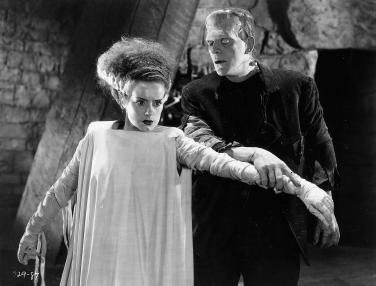The 8th edition of the Cinema and Science season is marked by a concept in which the scientific community has shown extraordinary interest: time.

Time also has history
The 8th edition of the Cinema and Science season is marked by a concept in which the scientific community has shown extraordinary interest: time. As a matter of fact, the bestseller by Stephen W. Hawking, which takes centre stage in the first film to be screened, The Theory of Everything -La teoría del todo- (James Marsh, 2014), was entitled A Brief History of Time: From the Big Bang to Black Holes. The first H.G. Wells novel that George Pal turned into a film, The Time Machine -Denboraren makina- (1960), brought the question of time travel into science fiction, mixed with significant political overtones. Everything Everywhere All at Once -Dena batera, leku guztietan- (Daniel Kwan and Daniel Scheinert, 2022), which won seven Oscars, kicks off with an interdimensional rupture, which serves to reflect on theories of the multiverse and, perhaps, to return to Hawking and black holes. Physicist and black hole expert Jean-Pol Fargeau contributed to the script of High Life (Claire Denis, 2018), whose plot revolves around a mission to one such hole, as well as featuring sexual and reproductive experiments.
How long a human body can withstand freezing temperatures at sea lies at the heart of the scientific debate in Djúpiò -The Deep- (Baltasar Kormákur, 2012), however much a part of Icelandic society would prefer to explain the facts far more easily: a miracle. The efforts to build the atomic bomb in World War II were a real race against time: Kampen om tungvannet -The Heavy Water War- -La batalla del agua pesada- (Jean Dréville and Titus Vibe-Müller, 1948) is a film that shines out like a golden nugget, with one foot in non-fiction and the other in adventure cinema in World War II Norway. And it is a Norwegian helicopter that shoots at a sled dog at an experimental station in Antarctica in the horror classic The Thing -Gauza- (1982) by John Carpenter, a master who at last makes an appearance in this season..
The stopwatch only appears to be reset when it comes to persevering in the field of scientific research, which is what happens to the brilliant protagonist of Le Théorème de Marguerite -Marguerite's Theorem- El teorema de Marguerite- (Anne Navion, 2024). Time is also what a village doctor devotes to his patients in La Maladie de Sachs -Sachs' Disease- Las confesiones del doctor Sachs- (Michel Deville, 1999), which won the Silver Shell for Best Director and the Jury Prize for Best Screenplay at the San Sebastian Film festival. Erin Brockovich (Steven Soderbergh, 2000) takes us on a feminist story of real events that keeps on sending us messages from the past: it took plenty of guts to expose the harmful effects of toxic compounds in water.
Two last items of news. It's been ages since this season screened a double bill; well, the time has come with two masterpieces of film history: Frankenstein and The Bride of Frankenstein (James Whale, 1931 and 1935). And it was also time to feature social sciences. Vincere (Marco Bellocchio, 2009) will warn us about the many devastating dangers that fascism poses. Mark Twain once said that history does not repeat itself, but it often rhymes...
